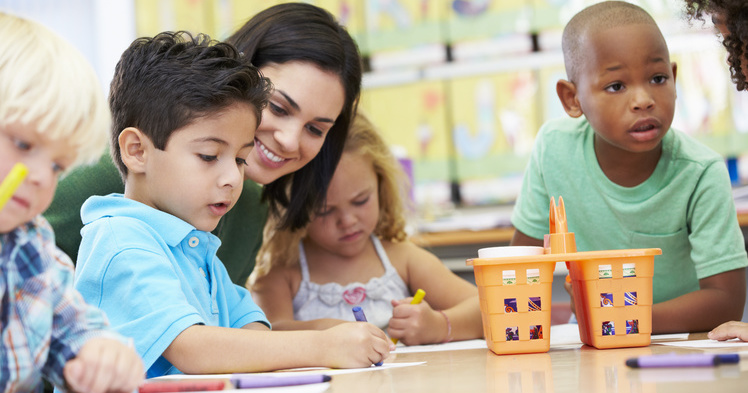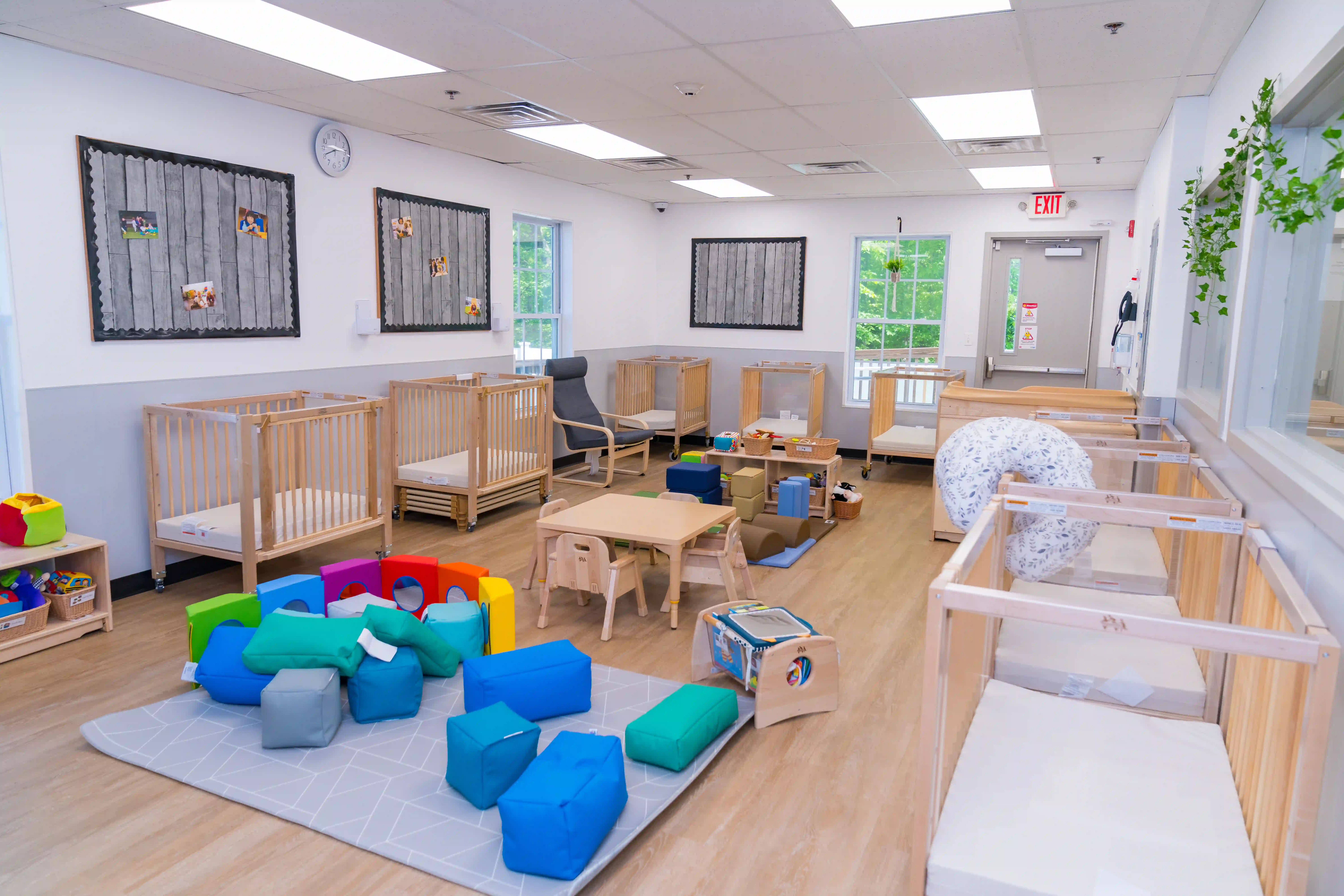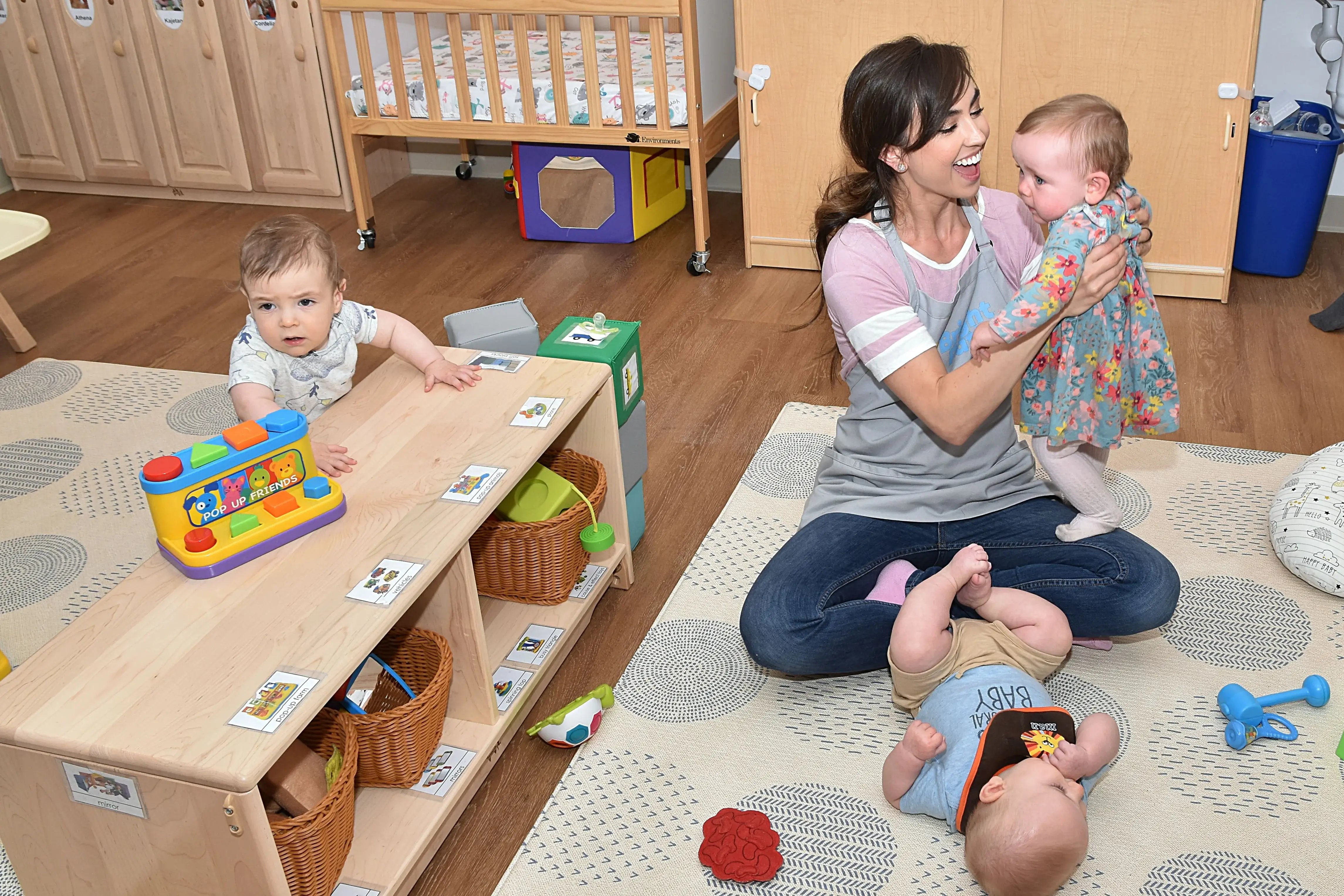Why Parents Choose A Professional Child Care Center For Their Children
The Role of Day Care in Fostering Social Skills and Very Early Knowing
Childcare works as a substantial environment for young youngsters, assisting in essential social interactions that promote very early knowing. In this organized setup, children engage with peers and caregivers, developing essential communication and cooperation abilities. As they navigate play and numerous activities, they learn to settle disputes and build emotional knowledge. Comprehending the nuances of these communications discloses the profound impact childcare carries a child's growth, shaping their future partnerships and academic readiness. What details skills do children acquire in this setting?
The Importance of Social Interaction in Daycare
While numerous moms and dads identify the significance of very early childhood years education, the function of social communication in day care is usually taken too lightly. Childcare setups provide children with important chances to engage with peers, cultivating crucial social abilities. Throughout these developmental years, kids find out to browse numerous social characteristics, such as sharing, teamwork, and problem resolution. Interacting with varied age teams and characters improves their capacity to adjust to different settings and create compassion towards others.

Structure Communication Abilities Via Play
Play works as an effective medium for youngsters to build crucial communication skills in childcare settings. Via numerous play activities, kids involve in discussions, express their ideas, and discover to listen to others. Role-playing games, for example, motivate them to make use of language in different contexts, advertising vocabulary growth and understanding of social hints.

In addition, narration throughout playtime permits kids to communicate ideas and feelings, assisting them develop narrative abilities and confidence in their verbal expressions. Generally, play not just acts as a pleasurable leisure activity however additionally as a vital platform for establishing the communication abilities required for successful social communications in later life.
Encouraging Teamwork and Synergy
Collaboration and team effort are crucial skills that children can cultivate in day care environments. Via various team activities, such as developing projects or collaborative video games, youngsters discover to share duties and pursue typical goals. These interactions promote an understanding of the value of paying attention to others, discussing roles, and compromising when essential.
In day care settings, caregivers usually create possibilities for kids to take part in synergy by urging them to participate in team tasks. This not just assists children create social bonds yet likewise cultivates a sense of belonging and neighborhood.
As they browse these cooperative experiences, kids get important understandings into the dynamics of functioning with peers. They find out to value diverse point of views and acknowledge that each member adds distinctly to the team initiative. Eventually, these very early lessons in participation and team effort lay the groundwork for much healthier connections and reliable collaboration in future social and scholastic setups.
Structured Discovering Activities and Cognitive Advancement
Structured understanding activities play an integral role in cultivating cognitive advancement in little ones (Childcare Near Me). These activities, that include problems, narration, and hands-on experiments, boost vital thinking and analytic abilities. In a day care setting, organized knowing motivates youngsters to involve with their peers, boosting their capability to process info and understand different principles
With led play and interactive jobs, kids create foundational skills such as numeracy and literacy. Tasks centered around numbers can assist children realize mathematical concepts, while narration improves language procurement and understanding. Additionally, organized learning allows teachers to assess developing progression and tailor activities to individual understanding demands.

Integrating a diverse series of organized activities not only promotes cognitive development yet also prepares children for future scholastic success. By providing a balanced atmosphere that fosters expedition and inquiry, childcare programs play an essential duty in forming the cognitive capacities of young students.
Cultivating Psychological Knowledge and Confidence
Emotional intelligence and confidence are necessary elements of a child's development, matching the cognitive abilities promoted via structured knowing activities. In childcare setups, youngsters are provided with chances to express their emotions and participate in social interactions, which are critical for constructing emotional recognition. Via led play more info and group tasks, children learn to determine their feelings, identify those of others, and develop empathy.
Communication with peers and caretakers helps to grow self-esteem and resilience. Positive reinforcement and encouragement from grownups encourage children to take threats and face obstacles, cultivating a feeling of accomplishment. As they browse social characteristics, youngsters develop confidence in their capabilities to interact, collaborate, and resolve conflicts - Daycare North York. This nurturing environment enables the progressive development of psychological knowledge, which is vital for future social connections and overall health. Therefore, day care plays a considerable duty in cultivating both psychological knowledge and self-confidence in kids
Frequently Asked Concerns
How Can Moms And Dads Choose the Right Day Care for Their Child?
Moms and dads must think about variables such as area, team certifications, security criteria, educational program, and examines from other parents when choosing the appropriate daycare for their child, ensuring it lines up with their child's developmental needs and family members values.
What Age Is Finest for Starting Daycare?

Just How Does Daycare Effect Kid's Actions in the house?
Day care typically positively affects kids's actions in the house by improving social abilities, advertising freedom, and motivating psychological guideline (Daycare North York). As a result, youngsters might display improved communication and teamwork, bring about more harmonious household characteristics
Exist Any Drawbacks to Childcare Attendance?
Yes, there are downsides to daycare participation, consisting of possible splitting up anxiety, exposure to illnesses, and irregular caregiving. These factors can impact a kid's psychological health and adjustment at home, impacting overall family dynamics.
How Can Parents Support Social Abilities Learned at Childcare?
Moms and dads can sustain social skills discovered at day care by promoting playdates, encouraging cooperative tasks, modeling positive communications, discussing sensations, and enhancing sharing and communication in your home, thus improving their child's social growth and confidence.
Daycare serves as a considerable atmosphere for young kids, helping with important social interactions that advertise early understanding. Childcare settings give kids with important opportunities to involve with peers, promoting important social abilities. Play serves as a powerful tool for kids to construct vital communication abilities in day care settings. In daycare setups, children are offered with possibilities to reveal their emotions and involve in social communications, which are essential for developing psychological understanding. Day care commonly positively influences youngsters's habits at home by enhancing social abilities, advertising independence, and motivating emotional policy.